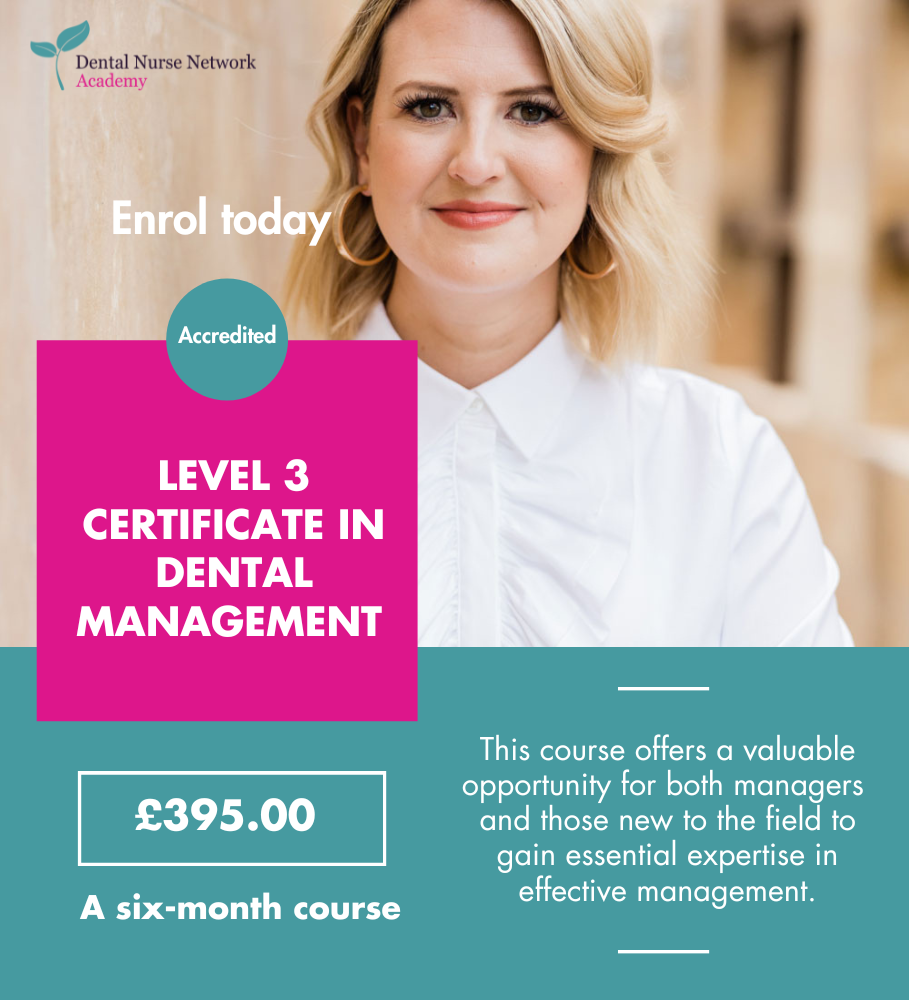 The GDC Register for February 2015 states that there are currently 53,096 Registered Dental Nurses working in the UK (www.gdc-uk.org). Clearly, such a vast number of professionals need to be regulated in some way, which is why the GDC created their Standards: a clear set of guidelines which each member of the dental team is expected to adhere to at all times.
The GDC Register for February 2015 states that there are currently 53,096 Registered Dental Nurses working in the UK (www.gdc-uk.org). Clearly, such a vast number of professionals need to be regulated in some way, which is why the GDC created their Standards: a clear set of guidelines which each member of the dental team is expected to adhere to at all times.
Currently known as ‘Standards for the Dental Team’ (first introduced on 30th September 2013 to replace previous documents), they consist of a set of nine principles which are there to ensure that the welfare of patients is protected and that the professionalism of the industry is maintained.
These principles are not an optional or advised code of conduct; failing to meet one of them could result in a professional being permanently removed from the GDC register and thus being unable to continue working as a dental care professional. Each year an estimated 10% of nurses are removed from the register because one or more of these principles have been breached.
So, what do the Standards require of the dental nurse? Well, to begin with, they are codes of practice which are taught to us through our initial qualifications and through our own practice policies, so should not be ‘alien’ concepts to any DCP.
For example, Principle 1 is: “Put patients’ interests first”. Principle 2 is: “Communicate effectively with patients” (Standards for the Dental Team, 2013 www.gdc-uk.org). These are fundamental to our first days as trainees, and are values that should be upheld every day we are in surgery. As professionals, we know that patient welfare is at the heart of our work. The dentists put the care of patients first in terms of offering them treatment plans best suited to their needs, in the adequate explanation of any treatment carried out, and by treating them in a hygienic and safe setting.
As nurses, we too have our role in ensuring all of the above, and through good communication can help ease any anxieties or fears a patient may have. In a surgery setting it is imperative that a patient is actively involved in any procedure that takes place by being comfortable discussing what it will entail - this will often be with the dental nurse.
Furthermore, Principle 7 states that as a member of a dental team, you must “Maintain, develop and work within your professional knowledge and skills” (Standards for the Dental Team, 2013 www.gdc-uk.org). Again, this is something that when we go into this profession we are actively made aware of; the importance of CPD hours is highlighted throughout our training, and with the wide variety of courses available, it is something that cannot be deemed unachievable.
The Standards should be referred to on a regular basis throughout your career as a dental nurse. It is often useful to reflect upon them when updating policies, or during a team meeting in your practice, as a reminder that we are all professionally responsible for our actions.
With an ever-increasing amount of regulations surrounding the dental profession, the Standards help to promote the values of honesty and integrity in our day-to-day work, and ensure that we focus on the wellbeing of the patient as something that should be at the heart of every practice.
Author: Amy Shipman BA, RDN


